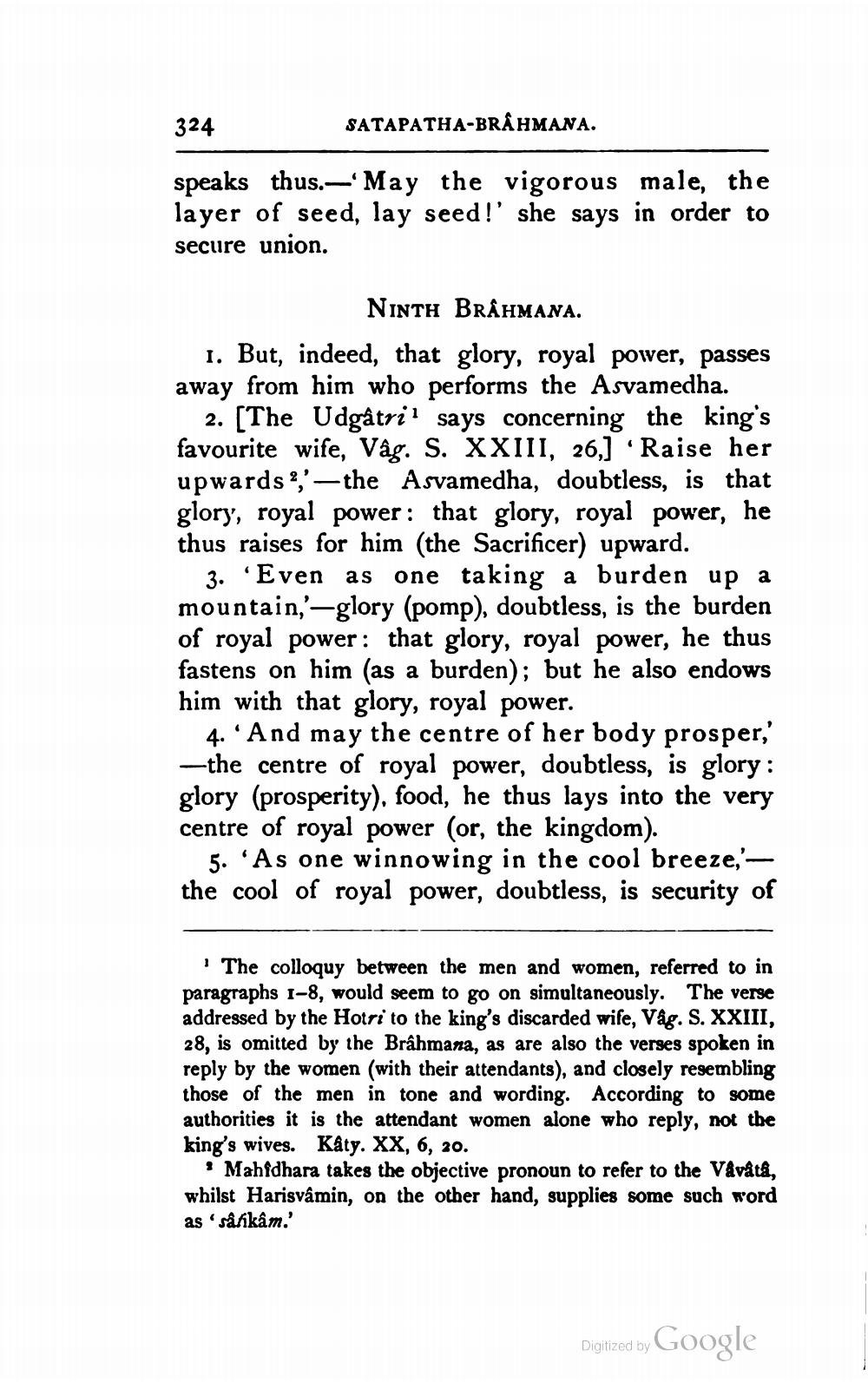________________
324
SATAPATHA-BRÂHMANA.
speaks thus.-May the vigorous male, the layer of seed, lay seed!' she says in order to secure union.
NINTH BRAHMANA. 1. But, indeed, that glory, royal power, passes away from him who performs the Asvamedha.
2. [The Udgâtril says concerning the king's favourite wife, Vâg. S. XXIII, 26,] Raise her upwards ?,' — the Asvamedha, doubtless, is that glory, royal power: that glory, royal power, he thus raises for him (the Sacrificer) upward.
3. 'Even as one taking a burden up a mountain,'-glory (pomp), doubtless, is the burden of royal power: that glory, royal power, he thus fastens on him (as a burden); but he also endows him with that glory, royal power.
4. And may the centre of her body prosper,' —the centre of royal power, doubtless, is glory: glory (prosperity), food, he thus lays into the very centre of royal power (or, the kingdom).
5. 'As one winnowing in the cool breeze,' - the cool of royal power, doubtless, is security of
The colloquy between the men and women, referred to in paragraphs 1-8, would seem to go on simultaneously. The verse addressed by the Hotri to the king's discarded wife, Våg. S. XXIII, 28, is omitted by the Brâhmana, as are also the verses spoken in reply by the women (with their attendants), and closely resembling those of the men in tone and wording. According to some authorities it is the attendant women alone who reply, not the king's wives. Katy. XX, 6, 20.
' Mahfdhara takes the objective pronoun to refer to the Vávåtå, whilst Harisvamin, on the other hand, supplies some such word as så kâm.
Digitized by Google




